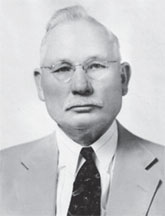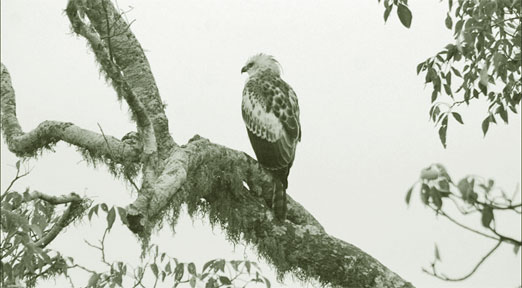Henry Englebrecht, Yala National Park's first keeper
By Amal Hewavissenti
Henry Englebrecht, a South African Boer was the first keeper of the
Yala National Park. He was appointed the keeper of the park by Sir Henry
Blake, the then Governor of Sri Lanka as a tribute to his hard life
fashioned to the tune of life in the remotest recesses of the country.
 |
|
Henry Englebrecht |
On a significant encounter with each, Henry Blake, the Governor
earnestly appealed to him to formally announce his allegiance to King
Edward the VII who was now controlling his mother country.
Yet, Henry Englebrecht vehemently refused to betray his conscience by
pledging allegiance to the principles of a ruler (Edward the VII) and
enjoy privileges back in his motherland.
In spite of all entreaties, remonstrations and influence, Englebrecht
refused to go back to South Africa (now ruled by King Edward) and chose
to live in Sri Lanka with the friendly people whom he managed to earn
within a short spell of time.
The new position as the keeper of the Yala National Park rekindled
his memories of the surroundings and the impressive forests of South
Africa.
Sir Henry Blake was deeply struck by the courage and the strong moral
principles of this strange man who unhesitatingly opted to live in a
foreign country rather than live in his motherland being ruled by a
foreign king. The Governor immediately appointed him the
Chief-Officer-In-Charge of Yala National Park which remained largely
uninhabited by animals then.
The new position transformed Englebrecht's life to a great extent and
life with animals in the park gradually wore out the radical nature
inherent in him. Even though he had been in exile, the Yala Park
provided him with complete freedom. The people in Hambantota were the
most amiable he had ever met.
Background story
During the Napoleonic wars of 1792 to 1815, Britain captured the Cape
and the English speaking colonists occupied it from the 1820s battling
with the Xhosa people for the ownership of farmland. In the 1830s, many
Dutch farmers who were called Boers wanted to control their own
territory and to own more land.
In Natal, Zulu chief Shaka who controlled all the surrounding African
tribes strongly resisted the invading Boers. In the course of decisive
battles, Britain defeated Zulus of Natal and the discovery of gold and
diamonds led to a fierce conflict between the British and the Boers led
by Paul Kruger. The Anglo-Boer war consequentially brought about a grave
defeat for the Boers who lost their territory to the British. At the
climax of the Anglo-Boer war in South Africa, the British arrested Boer
rebels and made arrangements to exile them to other British colonies.
Accordingly, thousands of Boer prisoners were exiled to Sri Lanka by
1900 and were detained separately in certain places in the country.
Among them was Englebrecht who had been noted to be a violent fighter
for the Boers in the Anglo-Boer war.
The peace accord signed in Pretoria in 1902 stipulated certain
conditions for freedom for the exiles and for their return to their
countries. The agreement strongly demanded that Boer prisoners were to
pledge allegiance to King Edward VII prior to their return to South
Africa. But Englebrecht opted to stay in Sri Lanka as he strongly
refused to swear loyalty to the British ruler while all other prisoners
had yielded to the agreement.
Englebrecht who was by this time living in Diyatalawa was joined by
four other Boer exiles who too protested against their motherland (South
Africa) being ruled by a British King. Ultimately the Colonial Secretary
of Sri Lanka issued a special announcement that the five Boer exiles
were allowed to live anywhere they wished. The order demanded that Engle
Brecht should collect his monthly allowance from the Kachcheri of
Hambantota while the other prisoners (exiles) were to collect theirs
from the kachcheris of Batticaloa and Jaffna.
 |
|
Splendour of Yala |
The announcement minimised the possibility that the five exiles could
get together and by 1905, Engle Brecht was the only Boer prisoner living
in Sri Lanka. He was presumably an extremely strange man because he
refused the chance to return to South Africa and live there as a true
African by merely expressing loyalty to the foreign ruler. But he seemed
to have valued his motherland being ruled by a Boer or at least by a
South African far more than his personal benefit.
Guardian of Yala
By 1905, Henry Englebrecht had grown accustomed to the life in
Hambantota and he had to make do with the scanty allowance of Rs. 1.25
from the Government. As the first keeper of the Yala forest reserve
Englebrecht was instrumental in introducing different varieties of young
animals to the park.
Wherever he went he was careful to look for animals or wounded
animals and release them into Yala Park after treatment. Once Governor
Henry Blake highly praised Englebrecht and expressed his immense delight
in making the right choice of the man - the keeper of the Yala
Park.Englebrecht, in the mould of Jim Corbett, was both a nature lover
and a skilled huntsman who killed animals that posed a major threat to
people and the helpless animals newly introduced into the park.
He possessed a fine flock of goats that gradually fell prey to the
wild animals specially the tigers.
The most skilled and experienced hunters did not dare to enter the
swathe of territory between Yala and Palatupana (an area reserved by the
Government for hunting then) without Englebrecht guiding them.
The plight
By now World War I had broken out and a German battleship S.M.S.
Emden was severely attacking ships that belonged to the allied forces.
This sparked a strong antipathy in British colonies against Germany's
S.M.S. Emden that had anchored in the Indian ocean. A provincial chief
who had had a personal strife with Englebrecht, spread a rumour that the
crew of S.M.S. Emden had disembarked on Yala and Englebrecht was
supplying them with beef. Officials from the Intelligence Service in
Colombo made a thorough search of his residence in Hambantota and found
empty bottles of liquor and canned food. The objects that were really
left by his hunter friends were immediately mistaken for the remains of
dinner parties that he was alleged to have organised for the crew of
S.M.S. Emden.
Englebrecht was immediately remanded on suspicion and was detained
for three months. After his death in 1922, he was found innocent of all
the charges previously made but he led a life of disappointment till his
death. |



